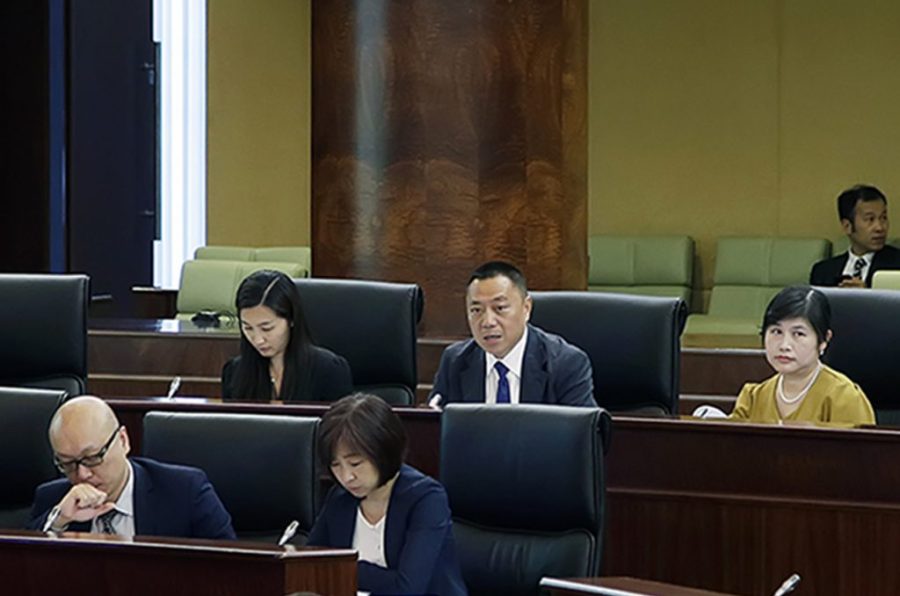The Legislative Assembly (AL) Thursday passed the outline of a government-initiated bill regulating the city’s finance leasing.
The legislature also passed the outline of a bill on tax benefits encouraging the establishment of finance leasing business.
Secretary for Economy and Finance Lionel Leong Vai Tac introduced the outlines of the two bills, which aim to promote the development of the city’s finance leasing sector, during a plenary session in the legislature’s hemicycle.
The first finance leasing bill is to replace the existing decree-law on finance leasing which came into force in 1994, while the second finance leasing bill – the tax benefit one – is to replace the current law on finance leasing tax benefits which was passed by the legislature under the city’s then Portuguese administration in 1994.
The government first proposed in its 2016 Policy Address that it would promote the development of financial businesses with “special features” as a way to diversify the city’s economy, Leong pointed out during yesterday’s plenary session, adding that the government then stated in its 2017 Policy Address that it would put special emphasis on finance leasing and wealth management businesses.
Leong said that the government has drafted the new finance leasing bill based on the opinions and suggestions of representatives from local and the mainland’s financial sectors and by referencing the experiences of other countries and regions.
The bill proposes that a finance leasing company be defined as a financial institution, while this kind of company is defined as a credit institution in the current decree-law on finance leasing, Leong said.
According to Leong, the government’s regulation on financial institutions is less strict than on credit institutions.
The bill proposes that a finance leasing company must hold a capital of at least 10 million patacas, a change from the 30 million pataca requirement stipulated by the current finance leasing decree-law, Leong said.
Leong noted that there are currently two finance leasing companies in Macau.
The other finance leasing bill – tax benefits encouraging the establishment of finance leasing business – passed during yesterday’s plenary session proposes that for the purchase of a real-estate unit used for a finance leasing business for the first time, the company does not need to pay the stamp duty for property transfers, according to Leong.
Under the current stamp duty system, for the purchase of all kinds of immovable properties, a buyer has to pay stamp duty of one percent of the property’s declared value which is below two million patacas, while the stamp duty rate is two percent for a property valued at between two and four million patacas. The rate is three percent for a property worth more than four million patacas.
According to Leong, the bill proposes that, however, if the company sells the real-estate unit within five years after purchasing it, the exemption of the stamp duty payment will become invalid – meaning that the company will then need to pay the relevant stamp duty.
Leong also told lawmakers that the government does not expect the two new finance leasing laws to be enough for Macau to become internationally competitive in the area of finance leasing, but that the government will also have to carry out other tasks to increase the local sector’s competitiveness.






